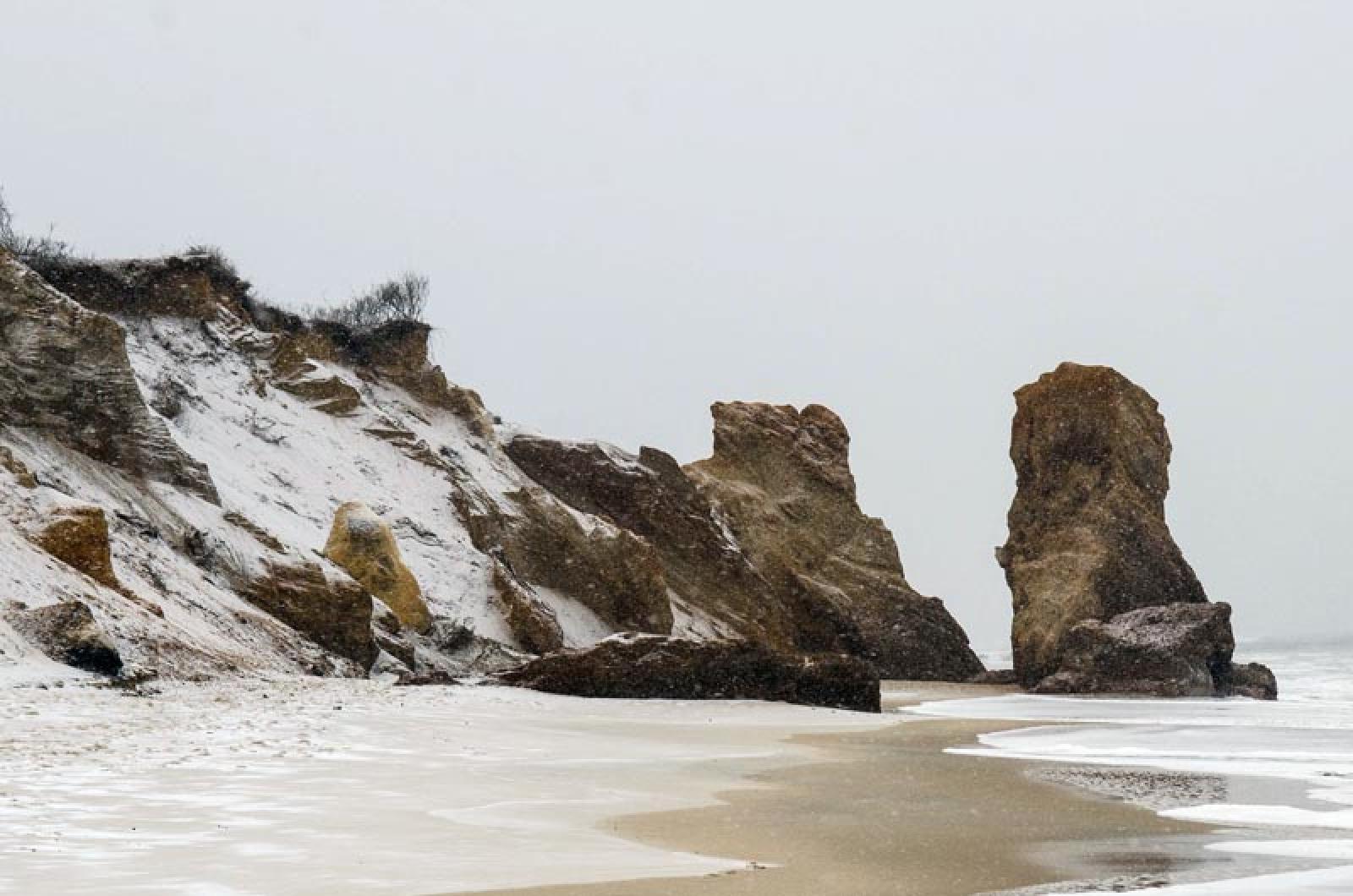Summer doesn’t officially begin for another 135 days, but Chilmark officials are already preparing for the heavy traffic that clogged the parking lot at Lucy Vincent Beach on the south shore last July and August.
In 2011, the beach committee decided to allow Chilmark inns to provide temporary beach permits for their patrons. As a result, very few people have been using public transportation to get from the inns to the beach, and the Vineyard Transit Authority is now considering scaling back its summer service in Chilmark. At the same time, the beach committee is considering ending the allowance for permits at the inns.
“It’s kind of a waste of resources to go service the inns and go to the beach,” VTA administrator Angela Grant said at a meeting of the town selectmen this week. She mentioned the possibility of shortening the daily schedule and focusing on servicing the town parking lot and regular commuters. She has not yet developed the summer schedule, but said she would need to do so this month to meet deadlines for both print and an online service for locating the busses.
The beach committee plans to meet with Mrs. Grant, inn owners and possibly a selectman on Feb. 17 to make a decision on whether to continue allowing the permits. The VTA’s summer schedule for route 12 in Chilmark will likely hinge on their decision.
“I’m happy to try to do whatever makes sense,” Mrs. Grant said. “It just has to produce more ridership than it has.”
Beach committee chairman Kristin Maloney, who was present at the meeting along with Joel Sheveck of Menemsha Inn and Beach Plum Inn, said trying to park at Lucy Vincent Beach in the summer can be an ordeal. She noted two incidents last summer that required police intervention. One definite change this year is that parking will no longer be allowed along the road leading to the beach.
As the result of erosion and rising seas, Squibnocket Beach to the west continues to retreat, losing popularity among the summer crowd. “We are not selling so many Squibby stickers, so the impact on the Lucy Vincent Beach is huge,” Mrs. Maloney said. The VTA currently does not serve Squibnocket Beach. A project to restore the beach was approved by Chilmark voters this week and will likely include the removal of a stone revetment, allowing the shoreline to naturalize over the next one or two years.
Chilmark has tried in the past to reduce the summer beach traffic. Mr. Sheveck remembered when Chilmark inns were required to provide van service for trips to the beach. “What we found was that our guy would just be sitting there with no one in the van and here we are paying them,” he said. “I don’t know what a solution exactly is, but we really depend, as far as the inns, on people being able to go to the beach.”
Last summer, the selectmen and the VTA established a free shuttle service on route 12, between a parking lot on Tabor House Road and Menemsha harbor. Despite a lack of publicity, the service saw some decent ridership in its first year, with up to 25 vehicles observed in the parking lot at one time. The selectmen are hoping to improve the experience this year by adding solar-powered lights at the lot.
Selectmen William Rossi and Jonathan Mayhew both favored revoking the inn permits. “We have such a severe parking problem, I think preferences should go to residents and the tenants renting residents’ homes,” Mr. Rossi said. He added that revoking the permits would be an attempt to improve the situation, but would likely not solve the problem, given the volume of summer traffic.
“I am very much in favor of the VTA and the system,” said Mr. Mayhew. “We can’t really have more cars. That’s a given.”
The VTA receives federal, state and local funding, in addition to its normal revenues. The operating cost for route 12 in Chilmark last year was about $50,000. The VTA’s total operating cost for all six Island towns was about $829,000. The company’s total budget was just under $5 million.
In other business Tuesday, the selectmen unanimously approved the transfer of a shellfish grant that has been used since 2010 to harvest blue mussels in Vineyard Sound. Alec Gale of Menemsha had been harvesting the mussels as part of an experimental program using ropes and buoys. The mussels grow on the ropes, rather than on the sea floor, ideally keeping them safe from pea crabs and increasing their growth rate.
Stanley Larsen, who will take over the grant from Mr. Gale, said that buoys needed to be replaced and that it would take some time to get ready for the next harvest. “I’m just hoping it’s going to keep going,” he said of the program. “Because I think that’s probably going to be the future of the fisheries of Chilmark.”
The project started in 2006 with support from the Martha’s Vineyard Shellfish Group and the Marine Biological Laboratory of Woods Hole. A $214,000 federal grant was used to explore the feasibility of growing mussels in Rhode Island and Vineyard waters, and the Martha’s Vineyard Permanent Endowment Fund contributed another $5,000. Federal and state permits to establish the site were granted in 2009.
Mr. Doty said the program has produced some good mussels, “but not on a consistent basis.”
“It does require a lot of work to be able to get a consistent supply going,” he said. “The ones that were produced there are absolutely delicious, I’ll say that. It’s just a question of seeing if there can be enough produced that makes it worth the time at a market value.”
The MBL, the shellfish group and Chilmark shellfish constable Isaiah Scheffer all supported the transfer of the grant.






Comments
Comment policy »